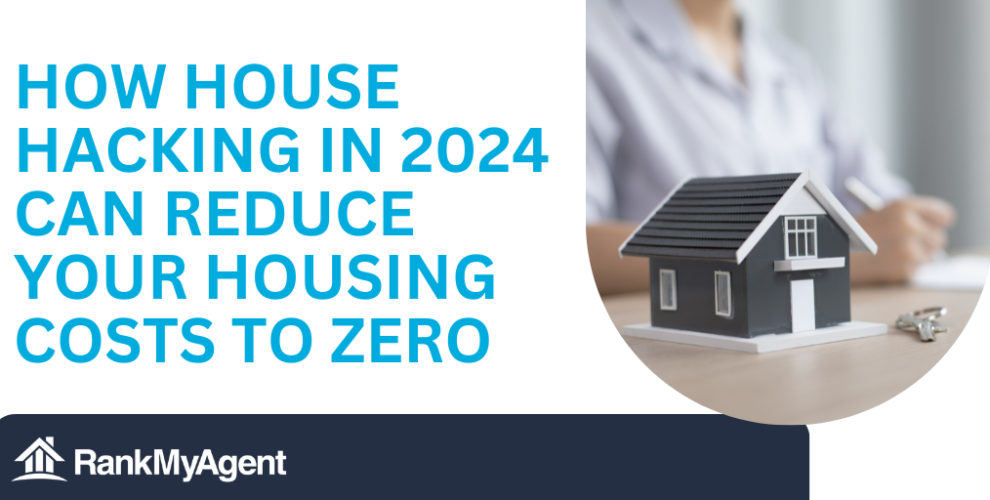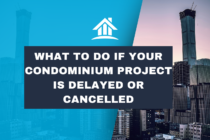Affording a home in Canada isn’t easy and especially in highly priced cities such as Toronto and Vancouver. Even if you save for a down payment, monthly mortgage payments remain a heavy burden that can leave you living close to paycheque-to-paycheque. But what if I told you that you could reduce or eliminate your monthly housing costs? House hacking can help you take steps to do just that.
In this article, we digest what house hacking is and its advantages and drawbacks. If done right, you could be on the road to living in your home for free.
What is house hacking?

The goal of house hacking is to cut your living expenses while you build home equity. The premise is to purchase a larger home than what you need so you can rent out the remaining space and act as a landlord. Your tenants’ rent should cover the full or a substantial amount of your mortgage payments. All the while, it’s you who builds equity in the property.
For example, if your monthly mortgage is $3000 and you rent out two rooms who are paying $1200 each, then you will only have to pay $600. At the end of the day, the more your tenants pay, the less you have to pay.
How do you do house hacking?
Some house hackers opt to purchase a duplex or triplex or a home with a basement apartment. But you can simplify it further. For example, you can rent out an extra room in your house to start your house hacking journey. But keep in mind during the home purchase process that you’ll be house hacking so you can plan.
When buying a home, you’re not only looking for your primary residence but an investment property. Therefore, you want to consider things like your neighbourhood and how you can renovate the property. Areas with post-secondary institutions can potentially reward you with student renters who are often ideal tenants. You’ll also want renovations that aren’t specific to your taste and appeal to the general population.
Unlike BRRRR, house hacking doesn’t require that you find a gem of an undervalued property. Generally, your goal isn’t to be profitable but to reduce your monthly expenses. But, it’s still important not to overpay for a home and to find the best deal available.
Build equity in your property with fewer costs
Whenever you make a mortgage payment, part of the payment goes towards the principal of the loan. By renting out part of your home, you can make this payment with less of your own money, in that you’re using someone else’s money—the rent from your tenant. Thus, you’re effectively building equity in your home for free!
Begin your real estate investment journey
While capital is also an issue, individuals commonly fear real estate investing because of their lack of knowledge. To be a successful real estate investor and landlord, you need to understand the financial, legal, general contracting issues that may arise.
However, house hacking ignites your learning because you begin to act as a landlord and real estate investor on a small scale. If you continue to invest in real estate, you’ll already know how to find and manage tenants and attend to many legal and financial situations.
Property management is much easier when you live there
Property management can be challenging when you’re far away. Often landlords may live in a city but have investments across the province/state. If a toilet’s clogged at 2 AM, a landlord often can’t just get out of bed and drive over. Calling a plumber or other professional to remedy the situation may also be expensive or challenging. This issue doesn’t exist when you house hack because you live with your tenant. If there’s an issue at 2 AM, it’s a matter of going downstairs or to the other unit.
Your quality of life may be reduced
If this is your first home, you want to make the house really feel your own. But when you house hack, this may not always be possible. For example, House hacking may mean you have a tenant in the bedroom beside you or that you can’t use your basement because it’s currently a rental apartment.
There are tons of upfront costs and work
Purchasing a home is hard. It’s even harder when you’re trying to buy a larger home so you can house hack. There will be many upfront costs for a down payment, lawyer fees, realtor commissions, and more. Additionally, you’ll likely need to renovate the property to make it desirable to tenants. Renovations will further take time, and it can be a stressful process for some. If you don’t have the necessary time or capital to manage it, house hacking may not be for you.
Being a landlord is a part- or full-time job
The idea of having your mortgage payments primarily covered by a tenant seems nice. However, you want to remember that you’re a landlord now. Despite what some believe, being a landlord is a job and requires attending to particular duties. You need to prepare for finding tenants, drafting leases, managing ongoing tenant issues such as conflicts, and maintenance requests.
Because you’re living with your tenant, the renter selection process is more critical than usual. Remember, this person isn’t only a monthly cheque but someone you’re living with or living beside.
Tax considerations have both pros and cons
There are both tax benefits and disadvantages to house hacking. On the pros side, house hacking lets you deduct the costs of being a landlord, such as property taxes, house maintenance, utilities, and interest payments.
However, the Canadian tax systems won’t allow you to claim the whole property for your principal residence exemption—only for the areas of the home you live in. This is easily calculated if you’re in a duplex, triplex, or renting a basement apartment. But situations such as a tenant that shares a kitchen and bathroom with you make it more complex. It’s best to speak to an accountant or tax professional to understand where your tax liabilities lie.

Final thoughts
House hacking is a great way to build equity in your home while reducing your monthly costs. However, there are many advantages and disadvantages to it, and it’ll depend on your circumstance whether it’s a right fit for you.




